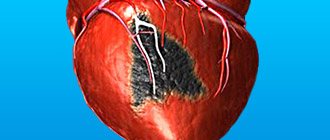Coffee is one of the most popular drinks in the world, which has many proven beneficial properties. It reduces the risk of developing diseases of the cardiovascular, endocrine, and nervous systems, and also increases life expectancy.
However, all these positive properties are observed only when taking the recommended doses of the drink (no more than 3-4 cups per day). If this indicator is exceeded, adverse reactions may occur. There are also restrictions for certain age groups and for pregnant women.
Daily norm
According to Canadian scientists, the daily caffeine intake for adult women and men is 400 mg, which approximately corresponds to 3-4 cups of an invigorating drink. With this volume, no adverse reactions from the central nervous and cardiovascular systems are observed.
Scientists also say (children under 16 years of age and pregnant women) the caffeine intake should not exceed 300 mg per day, and ideally no more than 200 mg.
However, according to the results of statistical studies, modern society consumes significantly more caffeine than recommended, and, in most cases, does not experience side effects.
It is important to remember that in addition to coffee, they are also rich in caffeine:
- tea;
- energetic drinks;
- sweet soft drinks (eg Coca Cola);
- chocolate;
- medications (Vasobral, Benalgin, etc.).
It is important to note that the dosage of caffeine is individual for each person. This depends on many factors (genetic characteristics, condition of the mucous membrane of the gastrointestinal tract, functional activity of the liver, etc.).
For example, according to American scientists, a genetically determined polymorphism of the enzyme cytochrome P-450 is associated with a high risk of myocardial infarction when drinking coffee.
The recommended daily intake of caffeine is 400 mg. This means that a healthy person can drink about 3-4 cups of coffee a day without harm to the body. It is also necessary to take into account the usual products containing caffeine. When taking the drink, it is important to take into account the individual sensitivity of the body.
Safe dose of caffeine
The permissible amount of coffee depends not on the number of cups of this drink, but on the proportion of caffeine content. After all, each person has his own preferences: some drink strong espresso, while others drink Americano diluted with water.
Doctors say that at one time the drink should not enter the human body more than 100-200 milligrams of caffeine in its pure form. This is two teaspoons of instant powder or three teaspoons of natural ground grains.
The safe daily dose of caffeine for an adult is 300 milligrams or three cups of the finished drink. It is in this quantity that it will not cause harm to health, will help overcome fatigue, charge the body with energy and increase endurance when playing sports.
Attention! Elderly people are advised to reduce the dose of coffee consumed per day or, if necessary, completely eliminate it from the diet (depending on their health status).
Caffeine content in drinks
On average, ground natural coffee contains 70-140 mg of caffeine in 1 cup (41-82 mg per 100 ml).
According to scientists, in instant coffee (both freeze-dried and powdered) the amount of caffeine is 30-40% less and ranges from 30 to 90 mg per 1 cup (17.6-53 mg per 100 ml).
The concentration of caffeine depends on the type of coffee beans (for example, “Robusta” has 2 times more than “Arabica”), the duration of roasting and various technological features of production.
The table shows the caffeine content in the most popular coffee drinks and other products.
| Drink | Caffeine per serving | Caffeine per 100 ml drink |
| Espresso | 59 mg (30 ml) | 196 mg |
| Americano | 68 mg (70 ml) | 97 mg |
| Cappuccino | 68 mg (180 ml) | 38 mg |
| Black tea | 80-100 mg (200 ml) | 40-50 mg |
| Green tea | 40-60 mg (200 ml) | 20-30 mg |
| Coca-Cola | 55 mg (500 ml) | 11 mg |
| Pepsi-Cola | 30 mg (500 ml) | 6 mg |
| Energetic drinks | 100-175 mg (500 ml) | 20-35 mg |
Thus, different types of coffee and coffee drinks contain different amounts of caffeine. Its content is influenced by many factors: from the type of grain to the duration of “brewing.”
Drinks and cocktails
Not all coffee lovers drink pure black coffee. Many people add milk, cream, foam, syrups, etc. How to calculate safe amounts of coffee with additives per day?
The principle is approximately the same. Milk somewhat slows down the absorption of active substances, which has a gentle effect on the heart and blood vessels, but overall, it does not change the picture too much. Most cocktails are prepared on the basis of espresso, that is, you can make calculations based on it.
- Latte is a cocktail of about 200 ml, sometimes 400 or 450 ml. For a 200 ml serving, 1 double espresso is used, which means 1 KE. In a double, 400 ml, there are usually two such servings, that is, you should drink no more than 2 glasses a day for a large latte, 4 for a standard one. By adding a large amount of milk, you can slightly increase the dose if you usually drink a lot of coffee and do not experience negative consequences: 3 cups of large or 5-6 glasses of standard latte.
- Cappuccino - medium portion - 150 - 180 ml, that is, a portion of double espresso to which milk and foam have been added. 4-5 standard glasses or 2-3 large glasses a day with a 3-4 hour break between them will not harm your health.
Short-term symptoms of overdose
When taking excessive amounts of coffee (as well as against the background of individual increased sensitivity of the body), the development of various side effects is observed. The most common ones include:
- Anxiety, increased suspiciousness.
- Irritability, negative attitude towards what is happening around.
- Dizziness and photopsia (floaters, dots before the eyes).
- Disorders of the digestive system. This group includes: heartburn, pain in the epigastric region and in the right hypochondrium.
- Feeling of palpitations and interruptions in heart function.
- Shortness of breath, feeling of lack of air.
- Soreness and discomfort in the skeletal muscles (usually in the calf muscles).
Short-term symptoms are mainly associated with damage to the digestive tract (direct effects), as well as the cardiovascular and central nervous systems (these organ groups are the most sensitive to caffeine).
If the above-described effects develop, you must immediately stop consuming any products rich in caffeine and provide first aid (if the symptoms are severe, you must call an ambulance):
- Perform a simple gastric lavage (if less than 30 minutes have passed since consumption). To do this, drink 1-1.5 liters of water (boiled) and press with two fingers on the root of the tongue, thereby causing a gag reflex.
- Take enterosorbenes. Suitable: Enterosgel, Smecta or regular activated carbon (1 tablet for every 10 kg of body weight).
- Over the next 10 hours, ensure you drink plenty of fluids (at least 500 ml of liquid per hour).
Large doses of caffeine can cause symptoms of poisoning. It is necessary to control the intake of any products containing this substance, and if adverse reactions occur, act wisely.
Principles of proper coffee drinking
Drinking coffee, even in acceptable quantities, can be harmful if you do not adhere to the following rules:
- Do not consume on an empty stomach. It is recommended to drink a cup of coffee immediately after eating or after 1–1.5 hours.
- Prefer a drink made from freshly ground grains to the detriment of instant.
- Stick to the established consumption limit, namely three cups per day. Never drink more than six cups per day, as this may lead to decreased sensitivity to the effects of caffeine.
- Do not drink later than four to five hours before bedtime. Otherwise, insomnia may occur, which will interfere with proper rest.
What happens if you drink coffee every day?
Almost all negative effects of coffee are observed immediately after consumption (in case of overdose or increased individual sensitivity).
With long-term use, it is possible to develop addiction (more and more doses are required to increase mental or physical performance) or dependence on caffeine (with sudden withdrawal, withdrawal symptoms are observed).
However, if you drink coffee every day in moderate quantities (according to recommendations), only beneficial effects are noted:
- General increase in life expectancy. Research shows that systematic coffee consumption (from 3 cups per day) is associated with a lower incidence of cardiovascular diseases and cancer and leads to a 16% reduction in mortality from all causes.
- Prevention of type II diabetes. American scientists have proven that drinking just 1 cup of drink per day reduces the likelihood of this pathology by 7%.
- Hepatoprotective effect. Among other things, coffee is also good for the liver. Drinking 4 cups or more per day reduces the likelihood of developing liver cirrhosis due to viral or alcoholic hepatitis by 84%. The effect is scientifically proven. Coffee also reduces the risk of liver cancer by 44%.
- Prevention of degenerative brain pathologies. The beneficial effects of coffee on the brain have long been proven. Systematic consumption of 3-5 glasses of drink per day prevents Pick's, Parkinson's, and Alzheimer's diseases.
- Improvement of mental background. Caffeine improves mood and reduces anxiety and depression. There are fewer suicides in coffee-drinking populations.
Thus, in the long term, coffee is extremely beneficial for the human body. When consumed in recommended doses, it can increase life expectancy, as well as prevent a number of diseases of the central nervous, cardiovascular, endocrine and digestive systems.
Age categories and dose of coffee
We have already talked about the norm for adults, but how much coffee can a teenager drink per day? For teenagers (and coffee is only allowed from the age of 14), the norm and frequency of coffee consumption is naturally less - no more than two cups of coffee (2KE) per week. It should be remembered that you need to start drinking coffee with less strong varieties, preferably with cream.
Parents should monitor the child’s condition after drinking coffee, and if the body reacts negatively, seek help from a doctor.
Is it possible for pregnant women?
Caffeine is able to penetrate the feto-placental barrier and have an effect on the fetus, which can lead to the development of many disorders.
Caffeine also affects the tone and contractility of the uterus, pathologies of which can be fatal for the further course of pregnancy.
Coffee has been shown to be associated with a high risk of:
- stillbirth (research);
- miscarriage (research);
- premature birth (research);
- intrauterine fetal hypoxia (research);
- fetal growth restriction (research);
Scientists recommend completely stopping drinking coffee during pregnancy and breastfeeding (caffeine also passes into breast milk), and if this is not possible, limiting its intake to 1-2 cups (100-200 mg of pure caffeine) per day.
Caffeine has a negative effect on the state of the reproductive system during pregnancy, as well as on the development of the fetus. While carrying an unborn child, you should limit your intake of the drink (to 100-200 mg per day), or it is better to abandon it altogether.
What are the dangers of drinking too much of a tonic drink?
Daily consumption of caffeine in amounts of more than 300 milligrams provokes a nervous and anxious state, the so-called caffeine agitation. The person becomes irritable and often suffers from insomnia. In some cases, digestive problems occur.
In addition, caffeine has a diuretic effect. If it enters the human body in increased quantities, it can lead to dehydration. However, studies have shown that drinking too much of the drink usually does not increase the need for additional fluid. This is explained by the fact that the human body gradually adapts and adapts to it.
Proven effects of caffeine
Caffeine is a central nervous system stimulant, with effects similar to amphetamines, only much weaker. The first study to prove the positive effect of caffeine on performance during aerobic exercise was carried out only in 1978.
Caffeine molecule
Here are more recent facts from one of the extensive studies on the properties of caffeine. Scientists Wilmore and Costeel proved in 2001 the following effects of caffeine:
- increased mental excitability,
- improved concentration,
- improved mood,
- reducing fatigue and delaying its onset,
- stimulation of the release of catecholamines (active substances that act as chemical mediators and “control” molecules in intercellular interactions, including in their brain. Examples of catecholamines: adrenaline, dopamine),
- enhancing the mobilization of free fatty acids (that is, promotes fat burning processes),
- increasing the use of muscle triglycerides (fuel sources for muscle function, which, for example, helps during intense training),
- the ability to increase muscle activity in sprinters, as well as athletes involved in strength sports: it can promote calcium metabolism in the sarcoplasmic reticulum, enhance the action of the sodium-potassium pump, maintaining the potential of muscle membranes.
Caffeine and its actions continue to be intensively studied, for example, it has not yet been clarified whether caffeine itself has an effect or whether it is a complex effect of caffeine and its metabolites.
The list of proven properties of caffeine, of course, is not complete and many scientists recommend caffeine for sports purposes. For example, coffee diuretics can be used for weight loss when needed.
An increase in performance in aerobic types of exercise has been proven for a long time, but there is no clear opinion about the effect on high-intensity exercise. If caffeine causes an increase in strength and power, it is predominantly in highly trained athletes (research by JR Hoffman and JR Stout, 2008).
beauty.ua
Caffeine is naturally found in many plants and has narcotic properties. The substance is necessary for plants to protect themselves from predators. But, fortunately for us, caffeine is harmless to humans, albeit in limited quantities.
Daily caffeine intake
On average, a person can consume up to 400 mg of caffeine per day without harm to their health. In terms of cups of coffee, this is only 2 medium servings of a not particularly strong drink. A large cup of coffee contains 3/4 of your safe daily intake of caffeine.
However, it is worth understanding that everything is individual. The value of the norm may vary depending on gender, genetics and the state of health of the person. For example, caffeine is contraindicated for hypertensive patients, as it increases blood pressure.
The medications you take can also affect your daily caffeine intake. For example, in the body of a woman who takes birth control pills, caffeine is absorbed more slowly, so you can allow yourself up to 3 cups of weak coffee.
But pregnant women are allowed to consume 2 times less caffeine per day - only 200 mg (1 average cup of coffee).
The lethal dose of caffeine is 10 g, or 75 cups of coffee per day.
Effect of caffeine
Caffeine, despite its narcotic properties, is very useful. It is able to enhance and regulate excitation processes in the cerebral cortex. The right doses of the substance increase motor activity and strengthen reflexes.
Caffeine also stimulates mental and physical performance and helps eliminate drowsiness and fatigue.
In reasonable doses, caffeine is also beneficial for weight loss and digestion. The substance dulls the feeling of hunger and helps burn calories at rest. Once in the blood, the substance is converted into fatty acids, which our body uses to melt subcutaneous fat. In addition, caffeine not only increases physical activity, but also enhances psychological endurance, so that it will be easier during training.
The health risks of caffeine
Large doses of caffeine lead to drowsiness and depletion of nerve cells. At the same time, the substance weakens the effect of narcotic and sleeping pills, increasing the reflex excitability of the spinal cord.
Under the influence of caffeine, cardiac activity increases, myocardial contractions occur more often and more intensely, so coffee is contraindicated for people with diseases of the cardiovascular system, especially hypertensive patients.
It is also worth remembering that caffeine is not only found in coffee. If you're planning to give up the energizing drink, but your body still craves caffeine, try one of these caffeine-containing products.
How to replace coffee: products with caffeine
- Tea: depending on the type of tea, 220 ml contains from 15 to 75 mg of caffeine. Moreover, there is more substance in young leaves than in old ones, and in large-leaf green tea - more than in other varieties. For comparison, a cup of brewed coffee (220 ml) contains 135 mg of caffeine.
- Cocoa: everyone knows that cocoa beans contain caffeine, but there is not much of the substance in the drink itself - about 5-15 mg per 220 ml. But it also contains other substances that have a stimulating effect on the nervous system.
- Chocolate is also a caffeine-containing product, and the more cocoa it contains, the more caffeine it contains. For example, a dark chocolate bar contains 30 mg of caffeine.
- Mate - Paraguayan tea has little caffeine, about 5 mg per 220 ml, but the herbal tea has an excellent tonic effect due to other substances.
Moisture retention
Water and other liquids have a diuretic effect. If a person drinks a tonic drink frequently, the effect obtained directly depends on the dose. With small amounts, the body will work as usual, and urine will be excreted in a normal volume.
Allowable amount of coffee per day:
- 3 or 4 cups, they do not cause a lot of urine;
- 400 mg of caffeine cannot have a bad effect on the human body.
Many people use the drink with various additives. What role does this play in producing the diuretic effect?
Why does coffee retain water?
- Milk is most often used; it can help retain moisture in the body.
- When sugar or sweet syrups are added, urine output decreases.
- It contains a large amount of caffeine, which provokes the removal of fluid from the body.
- Using ground grains will have less of a diuretic effect.
Therefore, a person needs to decide what effect should be achieved. This is the individual approach to the method and type of drink consumed.
Hypertensive patients and patients with heart disease should consume coffee with caution. The caffeine in it can cause an increase in blood pressure
Swelling may occur.











